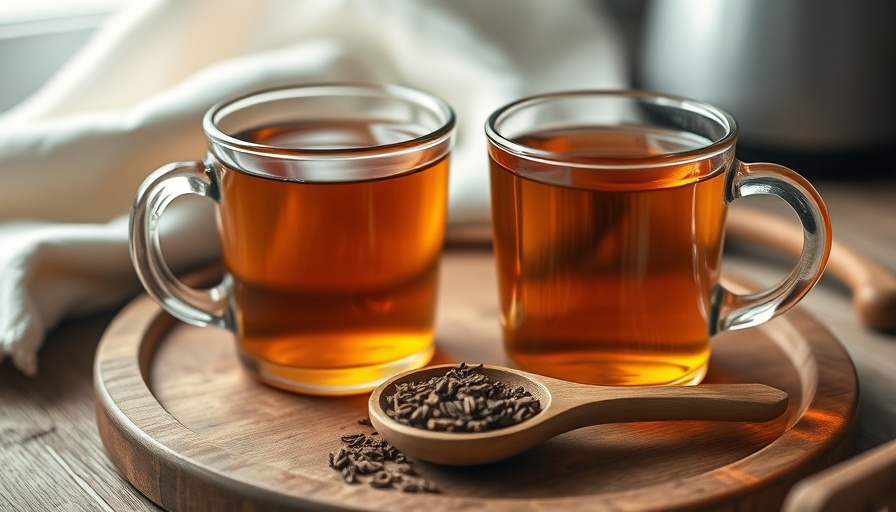
Exploring the Healing Power of Anti-Inflammatory Herbal Teas
Chronic inflammation can significantly impact our health, leading to conditions like autoimmune diseases, arthritis, heart disease, and even depression. As Michael Greene, a natural remedies enthusiast, shares, the answer may lie in nature's most soothing ingredients—herbs.
Understanding Inflammation: A Dual-Edged Sword
Inflammation serves as a natural defense mechanism within the body, assisting in healing while protecting against injury and infection. However, when inflammation becomes chronic, it turns into an adversary that exacerbates health issues. Recent studies highlight the link between chronic inflammation and many diseases, emphasizing the need to tackle inflamed states through dietary changes and herbal remedies.
Introducing the Anti-Inflammatory Tea Recipe
The herbal blend suggested for an anti-inflammatory tea includes green tea, ginger root, and turmeric. These ingredients are chosen for their remarkable properties:
- Green Tea: Rich in epigallocatechin (EGCG), a potent antioxidant, green tea combats various inflammatory diseases.
- Ginger Root: Known for its warming effects, ginger helps alleviate nausea while also possessing anti-inflammatory benefits.
- Turmeric: Contains curcumin, a compound with strong anti-inflammatory and antioxidant properties, although some may find it irritates their systems.
Starting with these base herbs, feel free to mix in additional ingredients like chamomile for calming effects, or holy basil for its stress-relief properties, creating a blend tailored to your preferences.
The Benefits of Home-Made Herbal Teas
Making your own herbal tea not only saves money compared to store-bought bags but allows you to control the blend's quality and potency. Moreover, herbal teas can address inflammation gently while enriching the body with antioxidants. The holistic approach emphasizes that while herbs are supportive, they work best in conjunction with a balanced diet and healthy lifestyle.
Detoxify: The Synergy of Anti-Inflammatory Ingredients
Herbs like peppermint, licorice, and fennel offer antimicrobial properties that can further boost health, help detoxify, and ease digestive discomfort, revealing a multi-faceted approach to combating chronic inflammation.
Beyond Herbal Tea: Food for Thought
Complementing herbal tea with a diet rich in anti-inflammatory foods is vital. Research suggests that items like fatty fish, leafy greens, and colorful fruits significantly lower inflammation. The synergy between food and herbal remedies can enhance their effectiveness, paving the way for a holistic strategy against illness.
Incorporating Lifestyle Changes
In addition to dietary adjustments, lifestyle habits play a significant role in managing inflammation. Regular exercise, quality sleep, and stress management techniques such as yoga can further reduce inflammatory markers. By integrating these practices into your daily routine, you can proactively combat chronic inflammation.
A Final Thought: Embrace Nature’s Remedies
With the rising awareness of inflammation's health impacts, natural remedies like anti-inflammatory herbal teas emerge as promising allies. Each cup offers warmth, comfort, and a bounty of benefits that work synergistically to restore balance within the body. So why not brew your own blend today?
 Add Row
Add Row  Add
Add 



 Add Row
Add Row  Add
Add 

Write A Comment